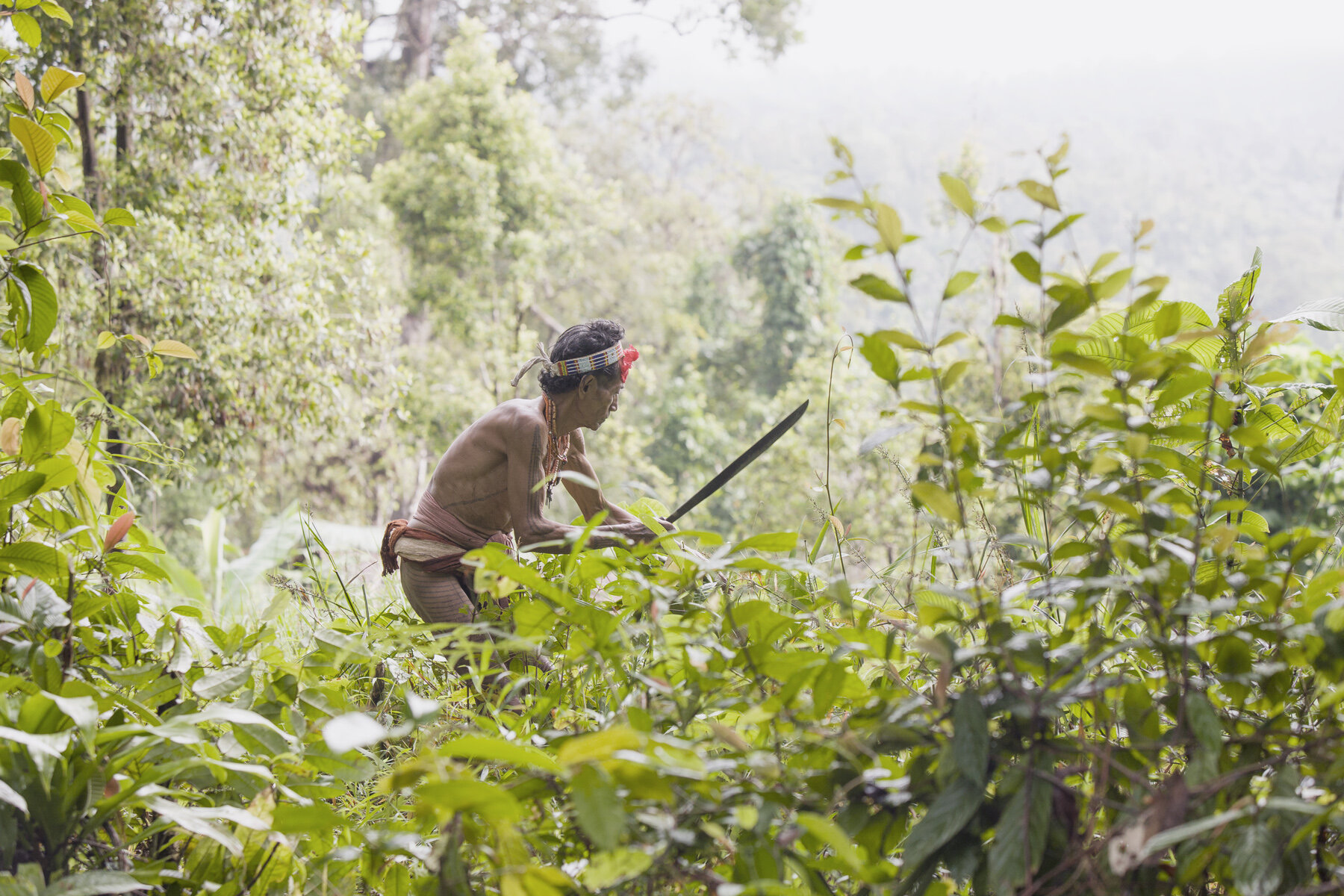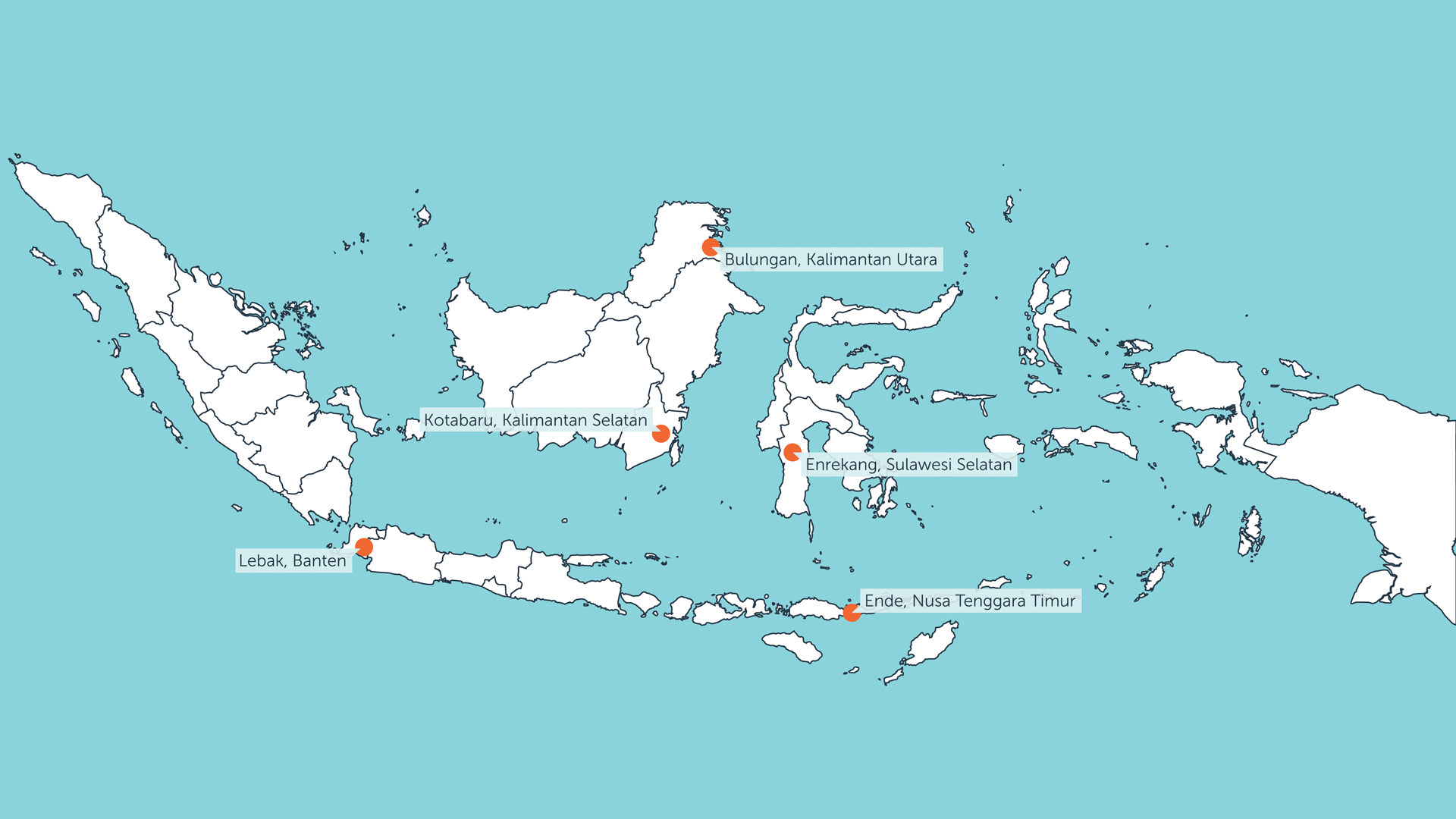Tenure Facility pilot initiative in Indonesia
Completed
From:
28/05/2015
To:
30/10/2017
Partners:
Indigenous Peoples’ Alliance of the Archipelago (AMAN)
Stakeholders:
Indigenous communities, including women and marginalized groups
AMAN
Indigenous Peoples’ organizations
Civil society organizations
District government
Public sector agencies involved with forest tenure
Office of the President
National Parliament
Indigenous Peoples and local communities in Indonesia have been managing forestlands under customary systems for generations, and their rights are enshrined in the country’s constitution. Yet most of their territory remains unrecognized, and 30 percent of the country is under industrial concession, resulting in massive forest fires and significant conflict and inequality. After decades of advocacy, a 2013 Constitutional Court ruling declared that the state had wrongly appropriated Indigenous Peoples’ customary forests and must return them, and the Government subsequently committed to transfer management of 12.7 million hectares of forestland to indigenous communities. With technical and financial assistance from the Tenure Facility, AMAN is supporting the drafting and adoption of district-level regulations to recognize rights. Securing rights at the district level immediately benefits indigenous livelihoods, reduces conflict, and strengthens natural resources management. In an innovative new approach, these regulations not only establish procedures for recognizing indigenous lands but also include recognition of specific territories by embedding community maps directly in the legislation. This scalable model is already spreading to other districts and creating bottom-up momentum toward national recognition of indigenous rights.
To read a brief overview of Indonesia, click here.
For a timeline of land and forest rights in Indonesia, click here.

"For more than 40 years, Indigenous Peoples of Indonesia have been marginalised, impoverished and criminalised due to lack of recognition of indigenous rights that led to lasting tenurial conflicts. The judicial review filed by AMAN is one effort to reclaim the rights of indigenous peoples in Indonesia. "
- Mardi Minangsari, Environmental Investigation Agency
Project Overview
AMAN advanced tenure security over 1.5 million hectares belonging to 200 indigenous communities and achieved recognition of 250,000 hectares — in 29 months.
Goal
To contribute to the legal recognition and protection of tenure rights of Indigenous Peoples in Indonesia.
Objectives
- Increase readiness at the district level for legal recognition of the tenure rights of Indigenous Peoples.
- Strengthen legal and administrative instruments at the national, executive, and legislative levels to advance recognition and protection of the tenure rights of Indigenous Peoples.
Actions
- Build an understanding of indigenous tenure rights in participating district government institutions and Parliament.
- Provide technical assistance and training for the drafting of local district regulations to recognise and protect tenure rights.
- Generate sociocultural and land use data complementing existing participatory community maps in project sites.
- Strengthen executive commitment to establish a Presidential Task Force on Indigenous Peoples and/or an executive order to implement the Constitutional Court ruling number 35/2012.
- Raise awareness of National Parliament members on tenure rights.
- Advocate for establishment of an Indigenous Peoples’ caucus in Parliament.
Results
- Assisted local governments in drafting 32 district-level regulations, as well as three provincial regulations, that respect the land and forest rights of Indigenous Peoples.
- Once passed, these local regulations will lead to titles for over 1.5 million hectares of land and forest belonging to 200 indigenous communities.
- Achieved adoption of five district regulations, involving 26 indigenous communities and recognizing 250,000 hectares.
- Anticipating adoption of two additional district regulations in 2017, involving 52 indigenous communities and recognising 68,000 hectares.
- Developed participatory maps of 41 community territories covering more than 125,000 hectares.
- Established three indigenous forests covering 6,000 hectares, recognised at district and national level.
- Trained 86 district-level government officials and indigenous and community organisations in regulatory processes and legal pathways.
- Introduced a new approach to participatory mapping in more than 38 communities to empower women, ensure meaningful participation, and integrate their knowledge and views into maps.
- Strengthened AMAN’s local chapters.
- Accelerated the establishment of the President’s Indigenous Task Force
- Established an Indigenous Parliamentary Caucus.
- Strengthened comprehensive understanding of the legal and administrative instruments in the Office of the President.
- Supported development of new laws and regulations and the legislative process, and advanced the draft Bill on the Recognition and Protection of Indigenous Peoples.
- Raised public understanding of indigenous issues in Indonesia.
"Our objective is to involve more women in community participatory mapping and legislation drafting at a local and national level. But our main priority is economic development for women, not only for their benefit but for the benefit of the entire community. This economic development will be based on natural resource management, focusing initially on household. "
- Devi Anggraini
, Chair of Perempuan AMAN

Impact
- Through peer-to-peer exchanges, ignited a movement that is spreading from district to district as local authorities adopt the approach of using local legislation to secure Indigenous Peoples’ land and forest rights.
- Strengthened AMAN’s capacity to manage projects and finance, implement monitoring and evaluation systems, partner with local government and civil society organizations, and integrate gender perspectives into community mapping activities.
- Set the stage for faster and more efficient recognition of Indigenous Peoples’ rights to lands and forests by demonstrating how district legislation can fill policy gaps at the national level and build momentum for national tenure policy for Indigenous Peoples’ territorial rights (adat) reform — contributing to a bottom-up push for a national level approach.
- Built momentum and demand for tenure reform at the national, district, and local levels.
- Positioned indigenous groups to protect land, forest, and water, and improve livelihoods, thereby contributing to global climate change and development goals.
- In participating districts, reduced the risk of conflict for communities, government, and private sector actors by clarifying the tenure rights of Indigenous Peoples.
Lessons learned
- Flexibility increases project effectiveness by reducing transaction costs and ensuring that a higher portion of the resources reached the intended beneficiaries. For example, the project expanded to new locations. It encouraged learning and the timely use of new insights to inform and adapt project approaches. It also enabled project leaders to make changes when the project encountered political volatility in local legislation processes. Flexibility does not mean lack of planning or discipline, which are also essential to achieve impact and scale.
- Peer-to-peer learning among Members of Parliament is enhanced when learning objectives are clear, such as sharing experiences on a single step in developing legislation, and peers engage repeatedly and in multiple ways, including through site visits and shared work. Facilitators need to simplify the process of peer engagement, and reduce requirements and transaction costs.
- The political dimension needs to be considered. Drafting local legislation is a highly political task, with interest groups constantly influencing the process. Local Parliament members with experience in similar processes provide a unique perspective because of the tacit knowledge they have about the practicalities of such reforms. It is difficult to capture this tacit practitioner knowledge and package it for broad sharing, which is why peer-to-peer exchanges with an emphasis on practical problem-solving are such a powerful way of sharing knowledge.
- Land rights projects set in motion complex social and political processes. Project leaders argue against projects that are excessively narrow and tackle only parts of complex problems. Dynamic and complex environments require a holistic project approach to manage interaction among technical, social, and political aspects.
- AMAN implemented the pilot’s gender perspective in collaboration with its autonomous women’s branch, Perempuan AMAN. It has a strong focus on increasing capacity to collect gender-sensitive data during mapping processes and ethnographic studies. They found that a participatory process may not in itself be sufficient to raise and identify land-related gender needs and concerns, even where they are important for women themselves. To ensure that maps and ethnographic studies reflect gender perspectives, a well-facilitated participatory process may need to be complemented by further gender analysis, within which the outcomes of the participatory process can be situated and discussed.
Rukka Sombilinggi
AMAN Secretary General
rsombolinggi@aman.or.id
Muhammad Arman
Project Leader and Head of Division of Legal and Policy Advocacy
arman@aman.or.id
Links
AMAN
